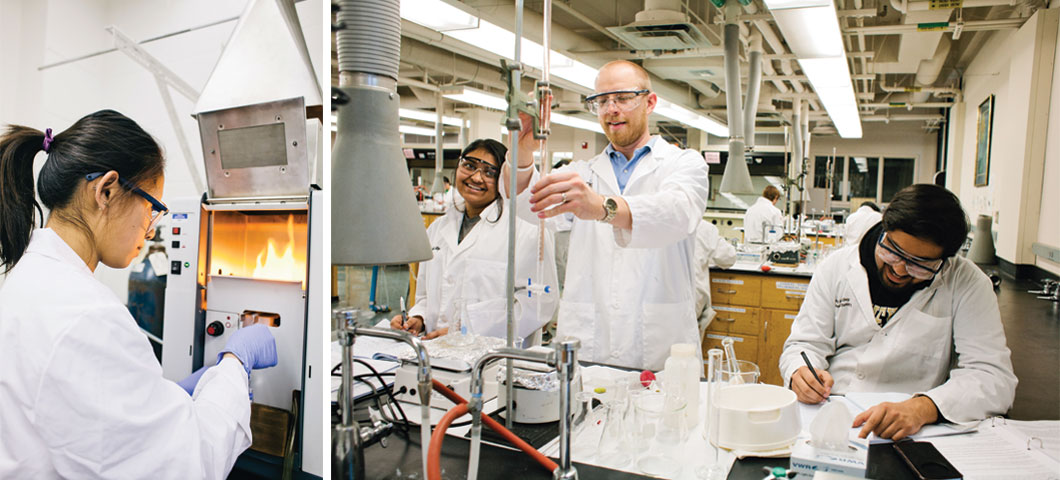College News
New Chemistry Research Fellowships
A new endowed research fellowship fund in the Department of Chemistry will provide income each year to support an undergraduate research fellowship. The fund will be named, in alternating years, in honor of emeriti professors of chemistry Mitsuru Kubota and Philip C. Myhre in recognition of their dedicated service and significant contributions to the College.
The Harris Family Research Fellowship Fund will support opportunities for chemistry and joint chemistry and biology majors to conduct undergraduate research on campus with a faculty research advisor in chemistry. Kubota and Myhre Fellows will take part in a 10-week research project that will begin in the summer following their sophomore year, continue through their junior academic year and conclude at the end of the following summer. Each fellowship provides summer stipends, academic year wages, research expenses, conference fees and travel funds.

Made possible by a gift from Daniel Harris, scientist, professor and author of the best-selling textbook Quantitative Chemical Analysis, and his wife, Sally Harris, this fellowship fund represents significant permanent support toward experiential learning, one of the key funding priorities of the $150 million Campaign for Harvey Mudd College.
“It is our privilege to be able to support undergraduate research opportunities in the chemistry department and to enable an extended relationship between a student and professor,” says Daniel Harris, whose son, David Money Harris, is the Harvey S. Mudd Professor of Engineering Design at the College. “The period of activity should be long enough for the student to develop a sense of what science is all about and to become proficient enough for the student and faculty mentor to delve into a subject. It is our hope that the student will have an opportunity to participate in a professional conference to present research results and be initiated into the community of scientists.”